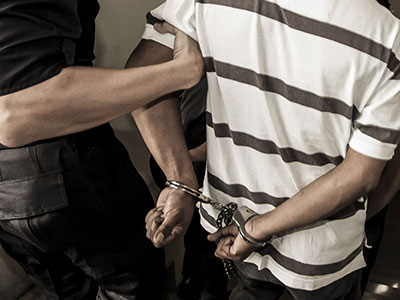What Are The Most Common Types Of Criminal Defense Cases That Your Firm Handles In California?
 The most common types of criminal defense matters that I handle are driving under the influence, fishing and hunting violations, possession and transportation of controlled substances, firearm violations, criminal traffic violations (including hit-and-run charges and driving on a suspended license), assault and battery, theft, criminal threats, manslaughter, and murder. There are many sub-areas within each type of case.
The most common types of criminal defense matters that I handle are driving under the influence, fishing and hunting violations, possession and transportation of controlled substances, firearm violations, criminal traffic violations (including hit-and-run charges and driving on a suspended license), assault and battery, theft, criminal threats, manslaughter, and murder. There are many sub-areas within each type of case.
What Are The Main Differences Between Misdemeanor And Felony Charges And Convictions In California?
In California, the main distinction between a felony and a misdemeanor is that a misdemeanor offense carries a maximum sentence of one year in the county jail, whereas a felony conviction may result in a sentence of up to life in prison.
Infractions are the least serious type of criminal offense and typically include minor traffic violations, and minor fish and wildlife violations. Infractions do not result in any kind of jail sentence; they typically result only in fines and points on a driving record, DMV record, or fish and wildlife record.
A misdemeanor offense is typically more serious than an infraction, and includes driving under the influence, driving on a suspended license, assault and battery, shoplifting, prostitution, drunk in public, and general controlled substance offenses that do not involve the sale of a controlled substance.
Felony convictions have serious consequences. A person who has received a felony conviction loses the right to vote while they’re in prison or on parole, likely loses the ability to obtain and maintain employment, and loses the ability to enlist in the military or remain in the military. The biggest issue for my clients is that a felony conviction results in the loss of the right to own or possess firearms, as well as ineligibility for many professional licenses. A felony conviction also results in an exclusion from jury service in California.
Do Most Of Your Clients Find It Extremely Important To Retain Their Right To Own And Operate Firearms?
The right to own and operate a firearm for sport or protection is something that many of my clients seek to preserve. Often, having a charge reduced from a felony to a misdemeanor is key because it preserves the right to own or possess firearms.
If Someone Suspects That They Will Be Arrested And Charged With A Crime, Should They Hire A Lawyer, Or Would Doing So Make Them Look Guilty?
Many think that by hiring a lawyer, they will make themselves look guilty. However, anyone who believes they might be a suspect in a crime should consult with an attorney who can guide them in terms of whether to provide a statement to law enforcement. An attorney can also communicate to law enforcement on the client’s behalf, acting as a buffer of sorts. An individual cannot be arrested or convicted simply for looking guilty. Someone who makes a statement to law enforcement without consulting with an attorney first might incriminate themselves, which would only strengthen the prosecution’s case. For anyone who might be a suspect, it’s always best to consult with a lawyer before communicating with law enforcement.
Is It True That The Police Can Help Someone Get A Lesser Sentence If They Admit To A Crime?
It’s not true that a police officer can help someone get a lesser sentence if they admit to a crime. The prosecution decides how a case is prosecuted, so any promises from law enforcement cannot and should not be relied upon. Essentially, part of their interrogation or interviewing technique is to make a suspect feel like if they lower their guard and talk, then they’re going to get a better resolution. This simply isn’t the case. It’s never a good idea to speak with law enforcement without having consulted with an attorney or without requesting that an attorney be present.
Is Law Enforcement Allowed To Lie To Suspects During A Questioning?
Law enforcement is allowed to lie to suspects during a questioning. Since they are not held accountable for lying, they can do so in an effort to get a suspect to talk and/or admit to something. Without consulting a lawyer, a suspect should never rely upon the information provided to them by law enforcement.
For more information on Criminal Law Cases in California, a personalized confidential consultation is your next best step. Get the information and legal answers you are seeking by calling (415) 782-6002 today.

Call Now For A Personalized Confidential Consultation!
(415) 782-6002



